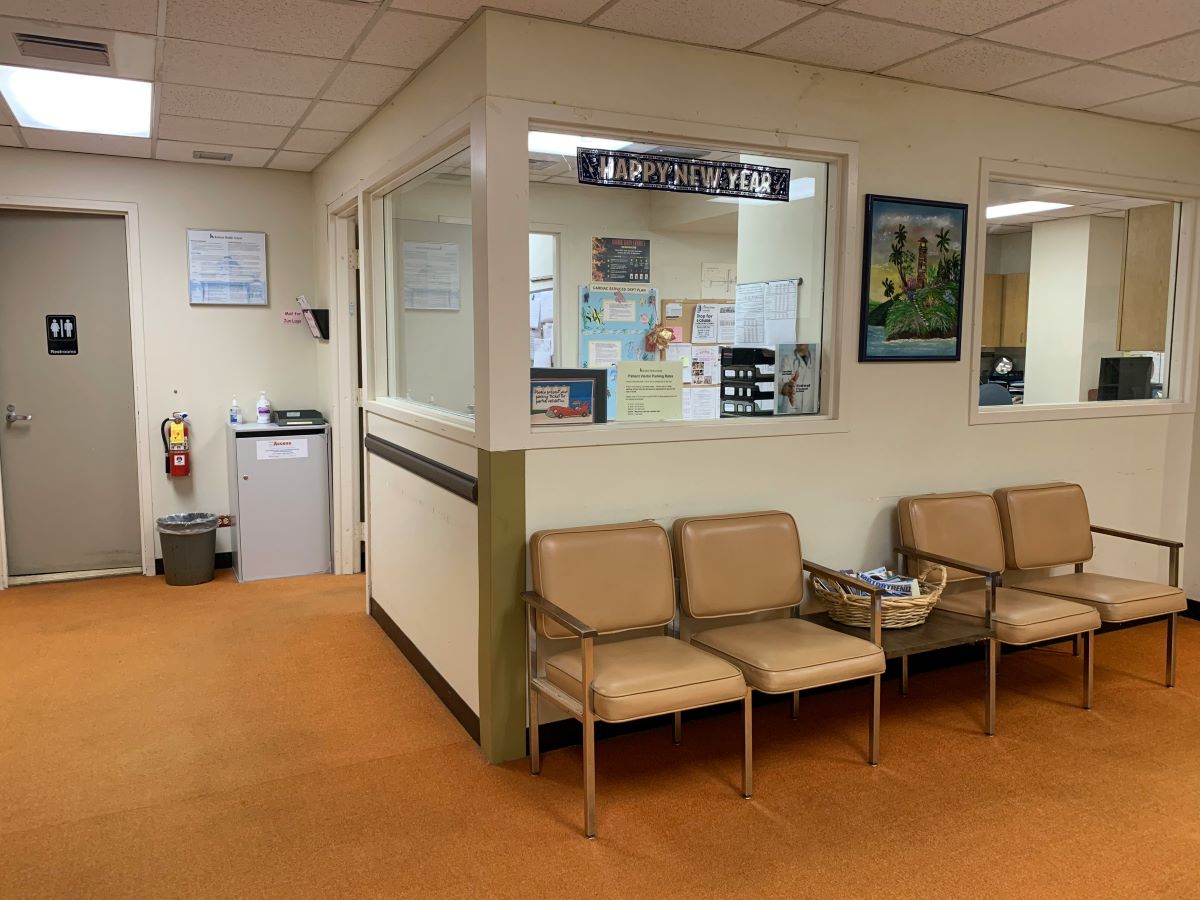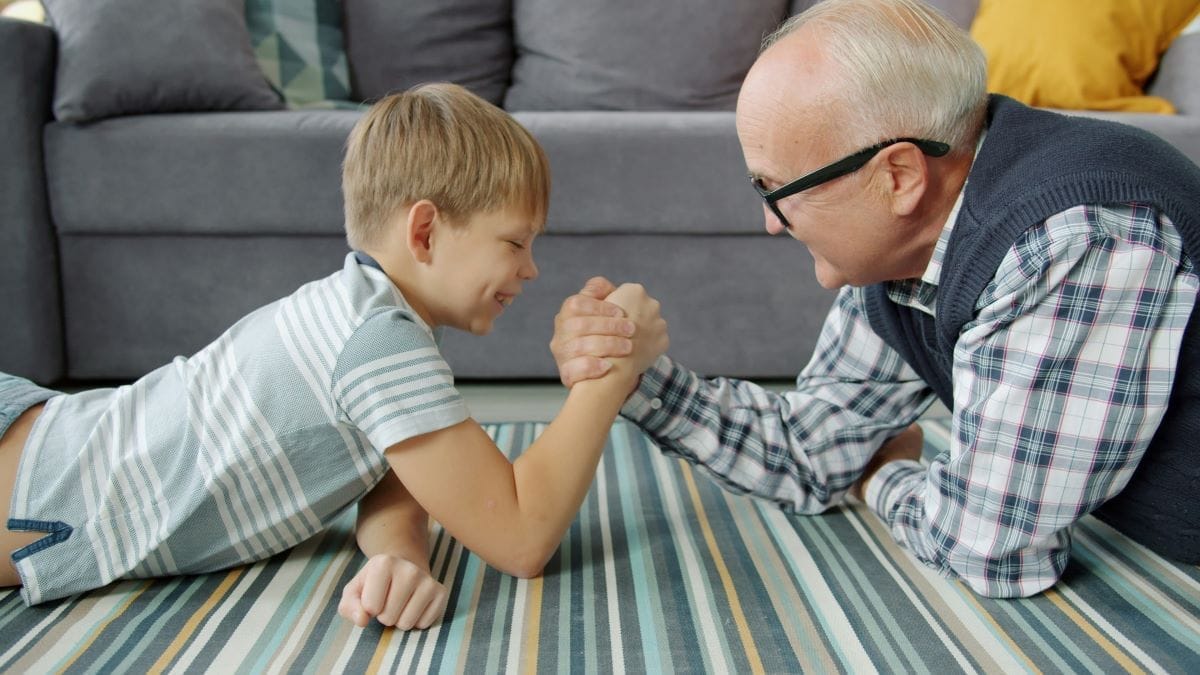Are you in North Carolina and looking for individual therapy or parent counseling?
Visit Flip Consulting and Counseling to schedule a free consultation
Written By Edla Prevette
The Heart-Wrenching Choice No Sandwich Generation Parent Should Have to Make
Picture this: Your teenager has the championship soccer game they've trained for all season – the same afternoon your mom needs to be rushed to the ER. Your phone is buzzing with messages from your child's coach while you're holding your mother's hand in the hospital waiting room.
In that moment, who gets you? Your child or your parent?
If you've faced this impossible decision, you're not alone. Licensed educational psychologist and author Christy Byrne Yates has been there too, and she wants you to know something crucial: caring for the whole sandwich generation family – including your children – isn't just about logistics. It's about preserving relationships, processing grief, and building a village that can support everyone when you can't be everywhere at once.

The Sandwich Generation Experience: More Than Just Caregiving Tasks
Like many people, Christy found herself in the sandwich generation before she even knew the term existed. In the early 2010s, she was working full-time as a school psychologist with two children in late elementary and middle school when her parents – both with dementia – moved into assisted living.
"My kids were very close to my parents, so they were intimately involved in everything we did," Christy explains. "I think because I knew a little bit about how home life impacts kids, as a school psychologist, I often heard families talk about caregiving impacting their kids, so I knew that this was a thing."
But knowing intellectually that caregiving affects children and actually navigating it are two different things. Even with her professional background, Christy admits: "I look back and I'm like, oh, I can't believe I was such a nightmare sometimes. And then other times I know I wasn't."
This honest reflection points to a critical truth: even when you're doing your best, sandwich generation caregiving is messy, emotional, and imperfect.
The Losses Your Children Are Experiencing Too
When Christy's parents passed away seven weeks apart in 2015 – the same time her son graduated high school and moved across the country for college – she experienced what she calls "loss, loss, loss." But she also realized something important about anticipatory grief, the grief that begins before someone dies.
"We're already grieving and your person is still alive," she explains. "And I think it's not talked about near enough. The grief that we experience while they're still living is, we really don't have time. But yeah, it's a lot."
What many sandwich generation caregivers don't realize is that their children are experiencing multiple losses too:
Loss of attention: When you're pulled in different directions, somebody's going to lose out, and oftentimes it's your kids. You can't be at all the ball games or recitals.
Loss of their grandparents: Children are grieving for their grandparents' declining abilities and eventual death.
Loss of their parent's emotional availability: They're also grieving for you – the parent who used to be more present, less stressed, less distracted by caregiving responsibilities.
Connection Over Correction: A Game-Changing Approach
One of Christy's most powerful concepts is "connection over correction" – and it applies to both your aging parents and your children.
"A lot of times we want to correct," she explains, sharing an example from her experience with her mother who had Alzheimer's. "They might say something and I'm like, no, that's incorrect. But why am I saying that? Why am I trying to correct her? I'm not going to reverse Alzheimer's by correcting her on her memory."
Instead of correcting, Christy learned to connect: "It's like, wow, that's interesting, mom. That's interesting. Yeah, tell me more about that."
This same approach works with children. Instead of shutting them down when they're wrong, try: "You're in the ballpark. Tell me about your strategy in coming up with that answer. How'd you get there? Let's try another strategy."
The principle is simple but powerful: Connection builds cooperation. Correction builds resistance.
Age-Appropriate Honesty: What to Tell Your Children
When you're stuck between parenting your children and caring for your parents, the key is looking at what age your kids are and what they can handle. But Christy advocates for openness and honesty across all ages.
For Younger Children (5-10):
Use comparisons they understand: "Remember when you were two and couldn't do X, but now at ten, you can? Well, Grandma and Grandpa used to be able to do A, B, and C, but now they can't because they're older."
Rehearse interactions: Give them specific questions they can ask or things they can do when visiting grandparents
Prepare them for changes: "This is what you're going to see when we visit Grandma this weekend"
For Older Children (10+):
Share age-appropriate information about your own feelings: "I know I seem sad right now, but I want you to know I'm sad because it's hard for me to see grandma and grandpa like this. This sadness isn't about anything you did."
Model self-care: "Here's how I'm taking care of myself. Remember there are times when you need to recharge too, right? That's what I need to do."
Include them in caregiving decisions when appropriate
The Modeling Message:
"I distinctly remember I am modeling for them how to care for other people," Christy reflects. "We get to model for our own children a way to be caregivers, but also how to take care of ourselves in that process."

Building Your Village: You Can't Do This Alone
One area where Christy wishes she had done better was building her support team. The truth is, we are not meant to do caregiving alone – and in many cultures around the world, we don't.
"Years and years ago, we did live in villages," she notes. "We lived in multi-generational communities. And so birth and death and everything in between was a normal, natural thing."
In Western cultures, particularly in America where the average person moves 11 times from their place of birth, we've moved away from these natural support systems. This means you need to intentionally create your village.
Your village might include:
Family members (but be realistic about what help they can provide)
Neighbors who can be "eyes on" your parents or help with simple tasks
Faith communities
Work colleagues who understand your situation
Support groups – both online and in-person
Professional services when possible
The Art of Asking for Help
There's a skill to asking for help effectively. Christy's recommendations:
Pick the right person for the specific need (someone who can reasonably help, not just someone you're closest to)
Be specific about what you need first – including time elements and whether money is involved
Give a brief reason why you need help – but don't give the whole story upfront
Make it okay to say no
Instead of: "Oh my goodness, my mother has been having these terrible episodes and yesterday she fell and I had to take her to the ER and then..."
Try: "Hi, I need a quick favor and it's okay to say no. Can you pick up some groceries for my mother? I can't get out of the house right now."
Setting Boundaries with Family Members
One of Christy's most practical strategies involved clear communication with her siblings about what support looked like:
"I not only told my brother and sister what I needed from them, I also told them what I didn't want," she explains. "I said, 'Here's what support would look like for me... but what I really want to request is, I'm here on the ground and if I make a decision to do something for them that you don't agree with, I really don't want backseat driving.'"
This "boots on the ground" conversation can prevent family conflict and protect your energy for actual caregiving.
Know Where You Are Before You Make a Plan
Christy's first critical recommendation for any sandwich generation caregiver is to do a self-inventory:
"Every caregiving story is a little bit different, every family is different. You need to know where you are. You need to know about yourself and what's going on for you."
Questions to ask yourself:
What are my strengths in this situation?
What areas are most challenging for me?
What do I know? What do I still need to learn?
How much do I want to do versus getting professional help?
Do I feel supported by my family members?
What boundaries do I need to set?
"If you don't know where you are, you don't know where you're going to go," Christy notes. This self-assessment helps you commit to the caregiving process and set realistic boundaries.

The Legacy Conversation: Planning Ahead Prevents Crisis Decisions
Christy's parents gave her an incredible gift: they proactively created an estate plan and expressed their end-of-life wishes before they were needed. Having both experienced long-distance caregiving for their own parents, they decided they wanted to go to assisted living rather than move in with their children.
"That was the legacy I felt that they gave me and my brother and my sister. We had a plan," Christy explains. "One of us, or all of us really, needed to execute that plan. They told us what they wanted."
This planning becomes even more critical when you consider that both of Christy's parents developed dementia. Had they waited too long, she might not have been able to get the answers she needed.
How to start these conversations:
Use natural openings (like after a family member's death) to plant seeds
Focus on life, not death: "How do you want to live your life? What's important to you?"
Remember that timing matters – don't have these conversations during stressful or emotional times
Consider your parent's temperament and approach accordingly
The Anticipatory Grief No One Talks About
One of the most important concepts Christy discusses is anticipatory grief – the grief that begins before someone dies. This affects both you and your children.
"You're grieving as well, and that's a great time to enlist other people to help you support your children because you may not be able to do as much for them as somebody else can," she explains.
Signs you might be experiencing anticipatory grief:
Feeling sad even when your parent is having good days
Grieving the loss of who your parent used to be
Feeling overwhelmed by the knowledge of what's coming
Struggling to be emotionally present for your children
How to help your children with their anticipatory grief:
Acknowledge that this is normal
Help them understand that grandparents won't be around forever
Focus on making remaining time meaningful
Enlist other supportive adults to provide what you can't in this moment
When Sandwich Generation Caregiving Is Actually a Gift
Despite the challenges, Christy found profound meaning in her caregiving experience. The title of her book, "Building a Legacy of Love," reflects how she came to see her parents' proactive planning and her family's caregiving journey.
"This is normal and natural. We know this is what's going to happen," she tells families. "We know that Grandma and Grandpa won't be around forever, and that's so sad, and so let's make what time we have really meaningful."
The sandwich generation experience, while difficult, offers unique opportunities:
Teaching your children empathy and resilience
Modeling how to care for others while caring for yourself
Creating meaningful memories across generations
Building stronger family bonds through shared challenges
Preparing your children for their own future caregiving roles
Your Action Plan for Supporting Your Whole Family
Based on Christy's expertise and experience, here's your roadmap:
Immediate Steps:
1. Complete a self-assessment – Know your strengths, challenges, and boundaries
2. Have age-appropriate conversations with your children about what's happening
3. Start building your support village before you desperately need it
4. Practice "connection over correction" with both parents and children
Ongoing Strategies:
1. Schedule regular family meetings to keep everyone informed and involved
2. Enlist other adults to support your children when you can't be fully present
3. Share your own feelings appropriately so children understand what's happening
4. Model self-care so children learn how to take care of themselves
Future Planning:
1. Have estate planning conversations with your aging parents sooner rather than later
2. Create your own estate plan – don't wait until you're in crisis
3. Build systems for ongoing communication with extended family
4. Connect with support groups and professional resources

You're Not Alone in This Journey
Remember that nearly one quarter of adults who provide care for at least one parent over 65 also care for at least one child under 18. That's approximately 2.5 million sandwich generation caregivers in the United States alone.
As Christy reminds us, this is a normal part of life that many cultures handle as a community effort. While Western society may have moved away from multigenerational villages, that doesn't mean you have to navigate this alone.
The most important thing to remember: Perfect caregiving doesn't exist. There will be days when you feel like you've failed everyone. There will be impossible choices between your children and your parents. There will be moments when you question whether you're doing anything right.
In those moments, remember that showing up imperfectly is still showing up. Your children are learning valuable lessons about love, responsibility, and resilience. Your aging parents are receiving care from someone who loves them. And you're doing something incredibly difficult with grace, even when it doesn't feel like it.
The sandwich generation journey isn't just about managing tasks and solving problems. It's about honoring relationships, processing loss, and creating a legacy of love that your children will carry forward to the next generation.
Feeling overwhelmed by the challenge of supporting your whole family while caregiving? You don't have to navigate this complex journey alone. Every sandwich generation family has unique dynamics and needs that require personalized strategies.
Schedule your complimentary caregiving consultation with Edla Prevette today and discover research-based approaches to strengthen family communication, reduce caregiver stress, and create systems that support everyone in your family.
Learn More About Today's Guest Expert
Christy Byrne Yates is a licensed educational psychologist, former school psychologist, speaker, coach, and author of "Building a Legacy of Love: Thriving in the Sandwich Generation." She develops and delivers content and coaching programs to support people in the sandwich generation with a focus on the whole family. You can find her resources and support at https://www.christyyates.com
Edla Prevette specializes in helping sandwich generation caregivers develop effective communication strategies and reduce stress while caring for aging parents. With thirty years of experience as an educator and therapist, she provides research-based approaches that make caregiving feel more manageable. Learn more at edlaprevette.com.

2024 Edla Prevette | www.edlaprevette.com | Privacy Policy | Terms and Conditions | Affiliate Disclosure
